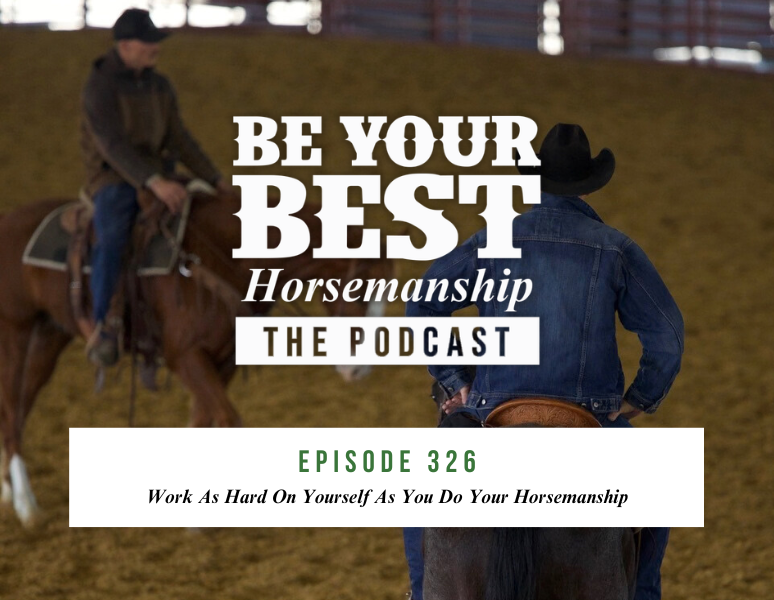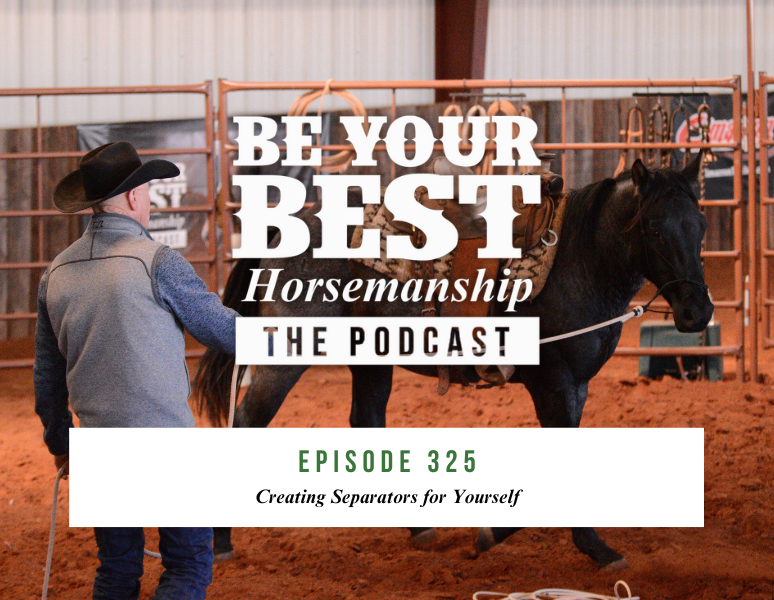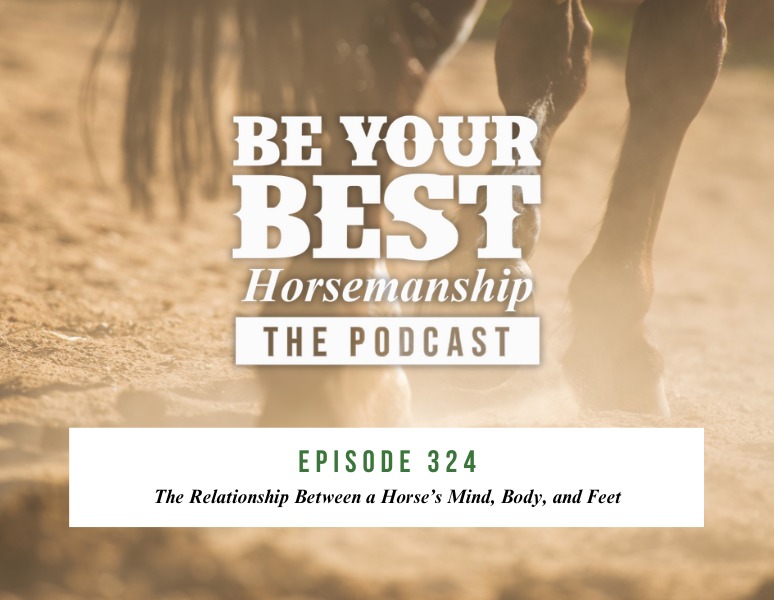Ep 273: Foundational vs. Genetic Traits
The Reality of Horse Training: Dealing with Foundation and Genetic Traits
This morning I had two really interesting conversations with a couple of horse owners and trainers that got me thinking about something that comes up often in the world of horsemanship—the difference between foundational traits and genetic traits in horses, and how they shape the way we train.
I’ve been talking a lot lately about how horses come with certain traits and characteristics, some of which are developed early on in their foundation, and others that are purely genetic. Now, these things get lumped together sometimes, but as a trainer, it’s important to recognize the difference. There are situations where trainers get blamed for things that aren’t their fault, and today I’m going to dive into a couple of examples that really highlight this.
Foundation vs. Genetics: The Traits You Can and Can’t Change
So, in both conversations this morning, the trainers I spoke with were dealing with horses that just didn’t fit their program. And you know what? Sometimes that’s just the reality of it. If you’re not on the same page as the horse, or the horse’s traits don’t align with your needs, then it’s time to make a change.
The first example was a trainer who bought a 4-year-old colt. This colt had some pushy and disrespectful behavior—traits that stemmed from early handling or the lack of proper foundation. The colt was used to walking over people, getting in their space, and essentially, pushing boundaries. This is a classic case of foundational traits. If these behaviors are tolerated early on, they can develop into habits that are tough to undo later. So, if every time this colt pushed into the handler’s space and wasn’t corrected, he was learning that this behavior is okay. Over time, these small behaviors become bigger issues.
Remember this: Whatever you tolerate, you encourage. That’s true for horses, people, and even employees. If I pick up on a bridle rein and allow my horse to rear in response, by releasing pressure, I’m actually teaching them that rearing is okay. Similarly, if I step out of the way every time a colt pushes into me, that colt is going to keep pushing harder and harder. These are foundational traits that get built into a horse early on, and if they’re not addressed, they can become huge obstacles.
The Struggle of Fixing Bad Habits
Now, don’t get me wrong, it is possible to fix these undesirable habits. You can work through them and make improvements. But when you’re working with a horse that has these bad foundational habits, don’t expect quick fixes. It’s going to take time. A lot of time. Just like when we built our new barn back in 2016. It would have been so much easier to start with a blank canvas than to tear down an old, run-down structure and build from there. It’s the same with horses. If a horse has a strong foundational trait that’s ingrained in them, it’s going to take a lot of effort and patience to change it.
The Genetics Side: Traits You Can’t Always Change
The second example I want to share is about a mare that had some fantastic bloodlines, but she had a genetic trait that made her difficult to work with at times. This mare had an issue with crossing water. On a day when she’d been going across water all day, suddenly she’d refuse to cross. Now, this might seem like an odd trait, but genetic traits can sometimes lead to these types of behaviors. These traits are part of the horse’s make-up, just like how a person’s personality traits can be inherited.
And here’s the thing—whether it’s a foundational habit or a genetic trait, you’ve got to ask yourself, “Is this something I’m willing to live with?” If you’re constantly battling against a horse’s nature and you’re not getting the results you need, you have to make a decision. Do you keep working through it, or do you part ways and find a horse that fits better into your program?
Knowing When to Let Go
In the case of the mare with the water issue, it came down to a personality conflict. Sometimes, you can have the best foundation and the best genetics, but the horse just doesn’t mesh with your needs or your personality. That’s okay. Sometimes the best thing for both you and the horse is to part ways and let someone else try. Maybe that trait isn’t a deal-breaker for them, or maybe the horse will thrive in a different environment.
But, it’s not just about the bad traits. Every horse has things you love and things you don’t like. For example, I’ve had some really nice horses that were easy to ride, versatile, and great for a variety of tasks. But athletically? They were just okay. And sometimes, “just okay” doesn’t cut it. There are times when you need a horse with a little more “oomph” for the job you’re doing.
A Matter of Compromise
When I think back to some of the horses that I’ve had, I can’t help but think of one mare in particular that Hannah rode for 16 years. She was a war horse—never been injured, always giving her best. But this mare had one big quirk: she wanted to pull back. And let me tell you, it took a solid year to get her over that. But once we did, she was unbeatable in the arena. Her athletic ability and work ethic far outweighed her little “bad habit.” The bottom line is, every horse has traits, and it’s about whether or not you can accept those quirks and work with them.
Accepting the Imperfections
So what’s the takeaway here? When you’re training or working with a horse, acceptance is key. If you’re dealing with a horse that has a strong genetic trait or a foundational issue, you have to decide whether that’s something you’re willing to work through. If it’s not a deal-breaker, then keep working, but don’t let it annoy you every time it pops up. If it’s something you can’t live with, then maybe it’s time to part ways.
Here’s the truth: there is no perfect horse. Just like there’s no perfect person or perfect relationship. Every horse has strengths and weaknesses. The key is finding the balance between what you can work with and what’s just not a fit. It’s about compromise, and sometimes that means letting go and finding a better match for both you and the horse.
Wrapping It Up
At the end of the day, the most important thing is to get better every day. And if you can mentally accept that not every horse will fit into your program perfectly, you’re going to be better for it. Horses are amazing animals, and the more we understand them—genetically and foundationally—the better we can be at helping them achieve their potential.




